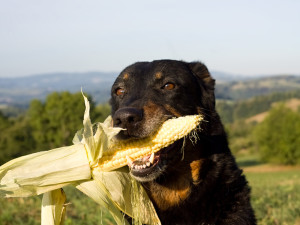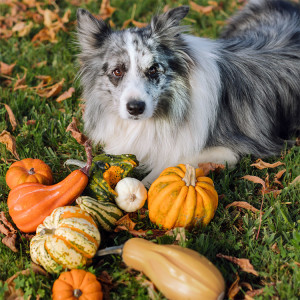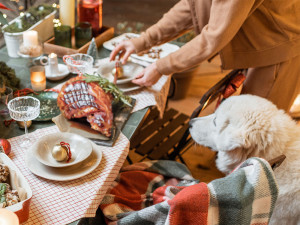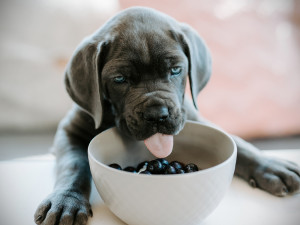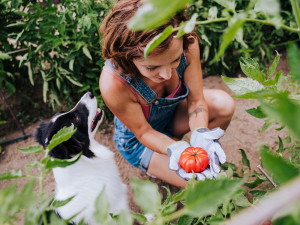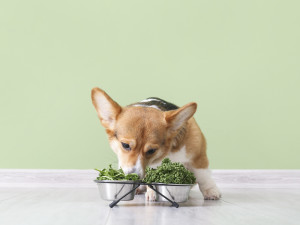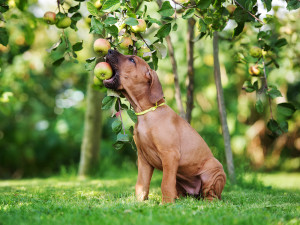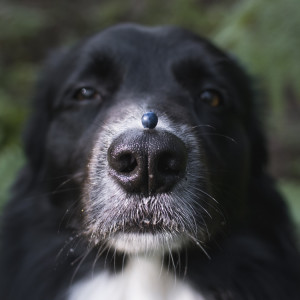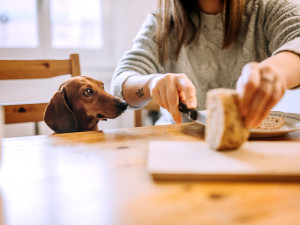Can Dogs Eat Mashed Potatoes?
It might be comfort food for you, but not for your pup.
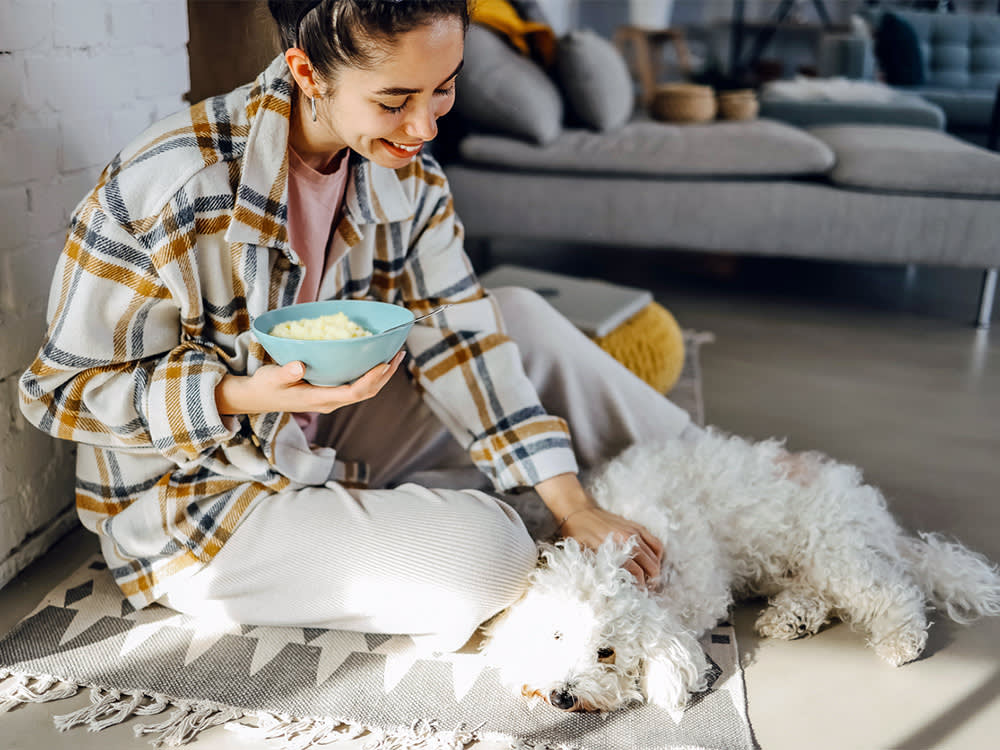
Share Article
If there’s one side dish that gets a lot of buzz, especially during Thanksgiving-time, it’s mashed potatoes. They’re a classic for a reason. Creamy, chunky, garlicky, covered in gravy — there are countless ways to enjoy the cold-weather snack… and pretty much all of them are bad for your pup.
Potatoes themselves are generally safe for dogs, but that’s assuming they’re cooked plainly, without any added toxic or unhealthy ingredients. More often than not, the mashed potatoes we know and love are full of decadent (and delicious) ingredients that add flavor. Some of those ingredients are on the no-no list for dogs. If you’re dying to share mashed potatoes with your pup, it’s possible to make a modified dog-friendly version. Learn everything you need to know about safely feeding your dog mashed potatoes below.
Nutrition facts about mashed potatoes for dogs
Mashed potatoes recipes tend to vary in how to make them decadent, smooth, creamy, and delicious. Then there are the add-ons for flavor, which may include garlic, chives, cheese, and/or additional spices, and seasonings.
Depending on what recipe you follow, the nutrition facts will vary. Potatoes provide lots of carbohydrates in the form of starch in addition to potassium and fiber. When mixed with the ingredients above to make mashed potatoes, they also provide fat, protein, calcium, and iron. While all of these nutrients are important for dogs, it is important to consider their source, because certain high-fat foods and dairy products are not healthy for our pups. Some of the added ingredients in these recipes, such as garlic and onions, may also be toxic to dogs.

Are mashed potatoes good for dogs?
Generally speaking, mashed potatoes are not good for dogs. These rich dishes can cause digestive upset, and some recipes can even have toxic ingredients. This includes:
High-fat dairy products: Butter, whole milk, cream, and/or sour cream are common ingredients in mashed potatoes. These high-fat dairy are unsafe for dogs; high-fat foods can cause digestive upset and put some dogs at risk for pancreatitis. Dogs also lack the enzyme lactase to break down dairy products during digestion, so if they eat lots of dairy, this may lead to gas, bloating and digestive upset, which may hurt you as much as it hurts them.
Garlic: Garlic may be a chef’s best friend, but it is no friend to dogs. Garlic is in the Allium species of plant, which is considered toxic to dogs. In small amounts, garlic may cause digestive upset and vomiting. If a dog were to eat a large amount of garlic, it can cause more serious problems, such as hemolytic anemia (destruction of the red blood cells).
Salt: In small quantities salt is fine for dogs, but they should not regularly eat foods that are high in sodium. These foods can lead to high blood pressure and increased strain on the heart, which can be especially dangerous in dogs with pre-existing high blood pressure, heart disease, and other health conditions.
Chives: Chives are another Allium species, just like garlic, onions, leeks, and green onions. Foods made with these plants should not be shared with dogs because they can cause vomiting, as well as more serious health problems if consumed in large quantities.
Cheese: OK, most of us have probably shared cheese with our dogs at some point because they absolutely love it. And while a small taste here and there is usually OK, cheese is another food that we should try to avoid on the regular. Cheeses are high in fat and have varying amounts of lactose, which dogs cannot properly digest. Some cheeses are also unpasteurized and can put pups at risk for food-borne illnesses.
Can dogs eat plain mashed potatoes?
The good news: It’s possible to make a dog-friendly mashed potato dish. Mash up some plain boiled potatoes with a little low-sodium broth to create a version that would be both delicious and safe for your dog.
If you want your pup to get the added benefit of fiber, leave some of the skins on the potatoes when you mash them, or consider using sweet potatoes to provide some additional nutrients. These kinds of treats and snacks should be kept to a minimum to ensure your dog gets the bulk of their diet from a complete and balanced dog food that meets their nutritional needs. Also, introducing new foods to your pup can sometimes lead to digestive upset, so start with just a taste and make sure your dog tolerates it.
Are mashed potatoes completely safe for dogs?
Unfortunately, most mashed potato recipes are not appropriate for dogs. All of the high-fat components combined with possible toxic ingredients like garlic and/or chives makes this a recipe for a sick pup in most cases. If your dog gets a lick or two of mashed potatoes, they likely will be fine, but you should not share these dishes with them intentionally.
If your dog gets into a large amount of mashed potatoes, especially if it contains toxic ingredients, be sure to contact your vet and a pet poison hotline right away. And if you do really want to share some mashed potatoes with your pup, be sure to set aside a portion of plain potatoes that you can mash up without any other ingredients for them.
Other foods that are safe for dogs
Broccoli and other veggies can be good snacks to share with your pup.
Blueberries and some other fruits are also a good choice.
Superfoods, like pumpkin and kale, can give your pup a nutrient boost, too.
Other foods that are dangerous
Chocolate and these other toxic foods should never be shared with your pup.
Grapes and raisins are also not safe for dogs.
Avocado isn’t great for dogs, either.
The bottom line: Can dogs eat human food?
There are many human foods that dogs can eat, and if you check out the ingredients in most dog foods, you will see many of the same foods you eat are included in their diets. The difference is that dog foods are carefully balanced to provide all of the nutrients dogs need at their specific life stage.
While you can share small treats and table scraps with your pup, provided they are safe for dogs, you don’t want them to fill up on those foods and miss out on the nutrients they really need. Keep in mind your dog’s total caloric intake for the day and try to keep treats and snacks to less than 10 percent of that total. Weight gain in dogs can lead to health problems, so avoid overfeeding your pup and make sure they are getting plenty of exercise each day.
FAQs:
How much mashed potato can a dog eat?
Dogs should not eat mashed potatoes if they contain lots of high-fat dairy or potential toxins like garlic or chives.
Is it OK to give dogs mashed potatoes?
It is important to check the recipe before sharing this food with your dog; dishes that contain high-fat dairy or ingredients like garlic or chives are not safe for dogs.
Why do dogs like mashed potatoes?
Dogs may be attracted to the taste and smell, especially if there are lots of high-fat ingredients in the dish like butter or cheese.
Are potatoes safe for dogs?
In small amounts, plain cooked potatoes are a safe food for dogs.
References:
“Garlic.” ASPCA, www.aspca.org/pet-care/animal-poison-control/toxic-and-non-toxic-plants/garlic.
“Chives.” ASPCA, 2015, www.aspca.org/pet-care/animal-poison-control/toxic-and-non-toxic-plants/chives. Accessed 26 Nov. 2024.
“Toxicology Brief: Allium Species Poisoning in Dogs and Cats.” DVM 360, 1 Aug. 2005, www.dvm360.com/view/toxicology-brief-allium-species-poisoning-dogs-and-cats.
Cridge, Harry, et al. “New Insights into the Etiology, Risk Factors, and Pathogenesis of Pancreatitis in Dogs: Potential Impacts on Clinical Practice.” Journal of Veterinary Internal Medicine, vol. 36, no. 3, May 2022, pp. 847–864, https://doi.org/10.1111/jvim.16437.
“Potato Health Benefits and Why You Should Eat More Spuds.” Good-Food, 18 May 2022, health.ucdavis.edu/blog/good-food/potato-health-benefits-and-why-you-should-eat-more-spuds/2022/05.

Dr. Amy Fox, DVM
Amy Fox, DVM is a small animal veterinarian in New York City with over thirteen years of experience in a mixture of general practice, emergency medicine, and shelter medicine. A lifelong animal lover, Dr. Fox studied biology in college and then worked as a veterinary nurse before pursuing veterinary school at Cornell University. Her expertise includes surgery, dentistry, and management of chronic conditions, and she is interested in toxicology, pain management, nutrition, care of senior pets, and educational outreach. Dr. Fox also enjoys writing about veterinary medicine and teaching, and her work has previously appeared in Spruce Pets. In her free time, she loves to cook, garden, go for long runs, and hang out with her goofy mixed-breed dog May, who provides never ending comic relief!
Related articles
![Puppy eating a bowl of blueberries]()
10 Superfoods You Should Share With Your New Dog
From kale to quinoa, these nutrient-packed picks deserve a spot in your dog’s food bowl.
Can Dogs Eat Tomatoes?
Bite-size pieces of ripe, red tomatoes are safe—but you should skip the marinara sauce.
Can Dogs Eat Kale?
Yep — this superfood is good for your dog in small amounts.
![Ridgeback puppy eating an apple from a low-hanging tree]()
Can Dogs Eat Apples?
Here’s why this fiber-filled fruit is a healthy treat for your dog.
![A close up view of a dog with a blueberry resting on its nose]()
Can Dogs Eat Blueberries?
Yep—blueberries are a fiber and antioxidant-packed snack for your pup.
![A woman cutting a slice of bread from a loaf in a cutting board in front of her Dachshund dog]()
Can Dogs Eat Bread?
The short answer: yes — in moderation. It’s better to go easy on this carb-heavy treat.

